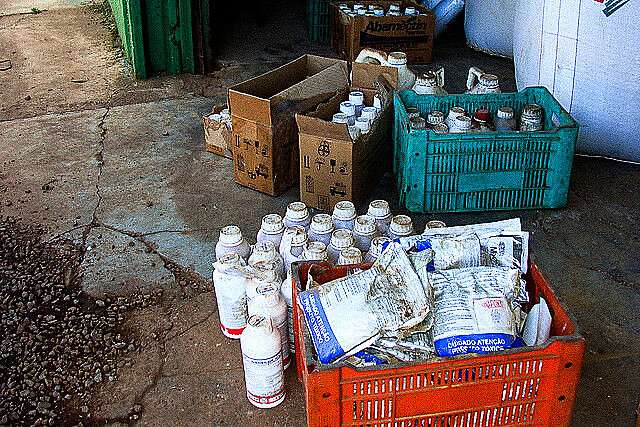In collaboration with CropLife Africa Middle East (CLAME), CropLife Ghana is set to develop short, medium, and long-term strategies to serve as a blueprint to fight against pesticide counterfeiting.
The blueprint will promote public-private partnerships and create synergies for a sustainable Anti-counterfeiting programme in Ghana.
The two organizations working to curb the menace in Ghana seek to adopt an all-inclusive approach in the fight against counterfeiting of crop protection products.
Illegal trade of pesticides, a growing concern
Mr. Peter Ampofo, the President of CropLife Ghana, made this known at a Stakeholders’ Forum on “Developing a Sustainable Strategy to combat the illegal Trade of Pesticides in Ghana”.
He said the illegal trade of pesticides was a growing concern for all industries, including the plant science industry.
He said the illegality had a range of adverse effects on farmers, manufacturers, national economies, and the environment.

The President said the harm caused by counterfeit and other illegal pesticides includes the health and incomes of the farming communities and the environment and eliminating incentives for the plant science industry to invest in innovation that helps assure food security.
He called on the government to institute measures that would mitigate the importation of these counterfeit and illegal pesticides from coming into the country and have actions that would prosecute perpetrators.
Professional and responsible use of pesticides improves farmers’ livelihood
Dr. Samira Amellal, the Director-General, CLAME, said, “we are convinced that the professional and responsible use of these products improves the incomes and livelihoods of farmers and their families.”
She said counterfeiting could contribute decisively to the growth of rural and national economies, adding that these illicit products posed severe harm to farmers, crops, and the environment as their contents are unknown, untested, and Unregulated.
The Director-General expressed the hope that industry players would be able to synergize efforts in working towards a common good, a safe agrochemical industry, sustainable agriculture, and increased food security.
Activities of CropLife Ghana contribute to developing the agro-chemicals landscape
Mr. Eric Quaye, the Deputy Director, Plant Protection and Regulatory Services Division (PPRSD) of the Ministry of Food and Agriculture, said the Division recognized the critical role CropLife Ghana played in coordinating product stewardship efforts of CropLife members.
He said the critical role contributed immensely to developing and promoting the pesticides and fertilizer value chains within Ghana’s agricultural landscape.
He said the stakeholder sensitization, awareness creation, and capacity-building activities undertaken by CropLife over the years are some of the commendable interventions that kept driving sustainability management of pesticides and fertilizers among stakeholders.
“It is important to note that the activities of CropLife Ghana complement the enforcement and compliance drives of the regulators of the pesticides and fertilizers industries.”
Mr. Eric Quaye
A group of agri-experts also disclosed in a recent interview that Aggressive Climate-smart agriculture (CSA) technologies dissemination which includes limited use of chemicals, is needed to develop to increase production in the country. According to the expert, harmonizing, mainstreaming and upscaling environmentally-friendly agriculture innovations to increase food production amid erratic rains, flooding, and drought caused by climate crises will save the country from food scarcity.
READ ALSO: Tullow Contracts Petrofrac to Operate FPSO Kwame Nkrumah


















